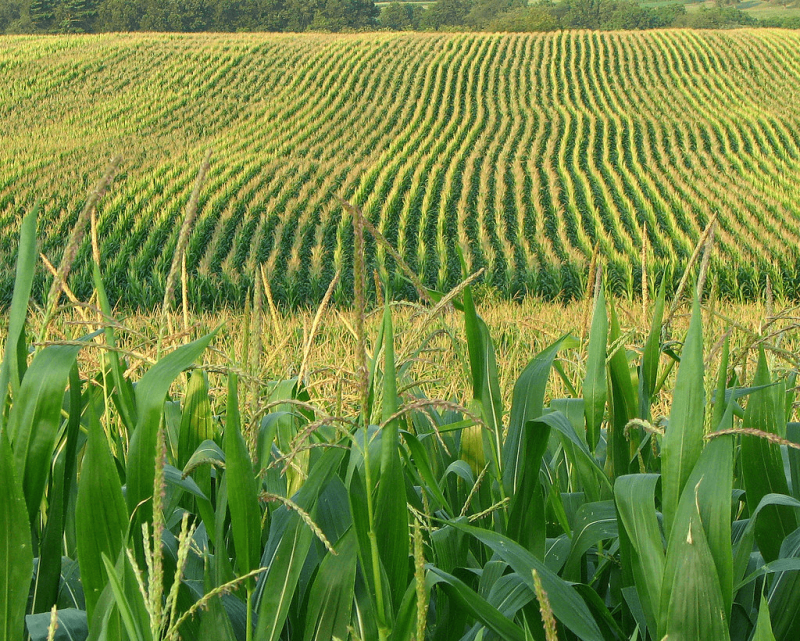Viewpoint: Agroecology supporters raise doubts about whether biotechnology-based intensive agriculture can both increase production and minimize biodiversity loss
Viewpoint: Agroecology supporters raise doubts about whether biotechnology-based intensive agriculture can both increase production and minimize biodiversity loss


The idea that increasing agricultural productivity will free up land for biodiversity and solve global hunger is gaining popularity in Europe and beyond. In Our World in Data, Hannah Ritchie argued that “If we can find ways to produce enough food on less cropland we can preserve more habitat for the world’s wildlife.” In December 2022, Dutch MP Nilüfer Gündoğan claimed that thanks to agricultural intensification, “in Europe alone, we could give 75 per cent of our agricultural surface back to nature, without this leading to cold winters, food shortages, economic scarcity.”
Many conservation biologists, however, contested that approach, asserting that biodiversity depends on complex interactions across different land use types. An insect, for example, does not respect artificial boundaries, and its ability to survive is therefore influenced by the biodiversity conditions of both farmed and unfarmed land. Matters are made worse for biodiversity when farmed areas are characterised by monocultures with high pesticide and herbicide use, as is often the case in the land sparing model. In such contexts, local extinctions are more likely to become permanent. A virtuous model would therefore privilege the ecological quality of farmed landscapes over maximising productivity, while also combating the drivers of deforestation.
…
This idea is at the basis of agroecology with its political, social, and scientific practices of sustainability. Genuine ecologists should work in this direction instead of promoting a simplistic understanding of the food system.
This is an excerpt. Read the original post here

 | Videos | More... |

Video: Nuclear energy will destroy us? Global warming is an existential threat? Chemicals are massacring bees? Donate to the Green Industrial Complex!
 | Bees & Pollinators | More... |

GLP podcast: Science journalism is a mess. Here’s how to fix it

Mosquito massacre: Can we safely tackle malaria with a CRISPR gene drive?

Are we facing an ‘Insect Apocalypse’ caused by ‘intensive, industrial’ farming and agricultural chemicals? The media say yes; Science says ‘no’
 | Infographics | More... |

Infographic: Global regulatory and health research agencies on whether glyphosate causes cancer
 | GMO FAQs | More... |

Why is there controversy over GMO foods but not GMO drugs?

How are GMOs labeled around the world?

How does genetic engineering differ from conventional breeding?
 | GLP Profiles | More... |

Alex Jones: Right-wing conspiracy theorist stokes fear of GMOs, pesticides to sell ‘health supplements’




 Viewpoint — Fact checking MAHA mythmakers: How wellness influencers and RFK, Jr. undermine American science and health
Viewpoint — Fact checking MAHA mythmakers: How wellness influencers and RFK, Jr. undermine American science and health Viewpoint: Video — Big Solar is gobbling up productive agricultural land and hurting farmers yet providing little energy or sustainabilty gains
Viewpoint: Video — Big Solar is gobbling up productive agricultural land and hurting farmers yet providing little energy or sustainabilty gains Fighting deforestation with CO2: Biotechnology breakthrough creates sustainable palm oil alternative for cosmetics
Fighting deforestation with CO2: Biotechnology breakthrough creates sustainable palm oil alternative for cosmetics Trust issues: What happens when therapists use ChatGPT?
Trust issues: What happens when therapists use ChatGPT? 30-year-old tomato line shows genetic resistance to devastating virus
30-year-old tomato line shows genetic resistance to devastating virus California, Washington, Oregon forge immunization alliance to safeguard vaccine access against federal undermining
California, Washington, Oregon forge immunization alliance to safeguard vaccine access against federal undermining The free-range chicken dilemma: Better for birds, but with substantial costs
The free-range chicken dilemma: Better for birds, but with substantial costs ‘You have to treat the brain first’: Rethinking chronic pain with Sanjay Gupta
‘You have to treat the brain first’: Rethinking chronic pain with Sanjay Gupta
